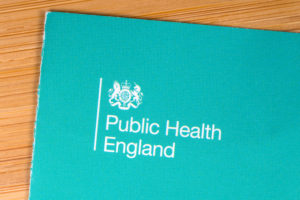Public Health England figures show failure to cut sugar in confectionery

The latest figures from Public Health England (PHE) have shown that a sector campaign to cut sugar from food product ranges including confectionery, by 20% over the past four years, has failed to achieve any tangible reductions within chocolate and sweets, reports Neill Barston.
Consequently, the news sparked concern from health campaigners including Action on Sugar over the industry’s inability to meet the voluntary goals, which have been hailed as a major influencing factor on childhood obesity. This has been underlined with a third of youngsters in the UK are considered as being clinically overweight.
The results of PHE’s studies found that between 2015-2019, sugar in sweet confectionery fell by just 0.1% against its target 20% reductions, while chocolate managed just 0.4% reductions as a category as a sales weighted average for branded manufacturers products. Biscuits fared slightly better, managing 1.6% cuts, as did ice cream, achieving 6.4% improvements, and breakfast cereals reducing sugar by 13.3%, with food categories as a whole managed 3% sugar reduction.

While overall sugar levels have not been reduced in confectionery – despite several high profile attempts to introduce reduced sugar ranges including Cadbury Dairy Milk bar with 30% less sugar, and Nestle’s now discontinued Wowsome bars, sales of confectionery have actually increased over the past four years (by 16% for chocolate), and 7% for sweet confectionery).
Results for calorie reduction were similarly flat – with consumers in 2015 recorded as having single serving snacks and confectionery at an average of 146 kcals per portion in 2015, compared with 147 kcals in 2019).
Following the latest report’s findings, Action on Sugar repeated its call for the government to make sugar reduction mandatory rather than voluntary, citing the success of the sugar tax levied on drinks manufacturers as an appropriate model to base any future action upon.
However, UK Prime Minister Boris Johnson has been reluctant to introduce such strategies, despite acknowledging his own issues with weight gain, he did not believe taxing food ranges was an acceptable approach, having previously labelled such policies as unnecessary ‘sin taxes’.
According to the PHE, which the government has confirmed is set to be replaced with a new agency, the National Institute for Health Protection, it noted the modest reductions of 3% sugar across food categories as a whole, but it acknowledged there was more work to be done in terms of educating consumers on healthier eating choices.
The organisation said that tackling obesity is an urgent national priority with growing evidence that being heavily overweight can increase people’s risk of serious illness from coronavirus (COVID-19). Each year, the NHS spends an estimated £6.1 billion treating overweight and obesity related ill-health.
Graham MacGregor CBE – Chairman of Action on Sugar, Professor of Cardiovascular Medicine, Queen Mary University of London reacted with concern at the PHE results.
He said: “Apart from the sugary drinks levy, it’s abundantly clear that the Government’s voluntary sugar reduction programme is simply not working, after reporting a dismal 0.1% reduction in sugar between 2018 and 2019.
Food and drink companies that want to do the right thing are crying out for a level playing field, which can only be achieved by setting mandatory targets for calorie and sugar reduction. The soft drinks levy has shown that this approach is both best for business, and best for everyone’s health, including people from more disadvantaged groups.”
He added that while the Government gets to grips with the current Covid-19 pandemic, it should not ignore that the situation is impacting on the UK’s other pandemics – obesity, Type 2 Diabetes and tooth decay, which he noted were all linked to high sugar intakes which the food industry is largely responsible for.
In his view, “implementation comprehensive and compulsory reformulation targets across the whole of the food and drink industry” was required to reduce sugar and excess calories.
Speaking on the report, Jo Churchill, Public Health Minister, said that while there had been progress on sugar reduction, particularly in products like breakfast cereals, yogurts and ice cream, there was more to be done.
She said: “COVID-19 has highlighted obesity and how important it is to tackle it. Our recent announcement of the obesity strategy includes world-leading measures, such as a TV watershed for advertising food and drinks high in fat, salt and sugar, and consulting on how we can introduce a ban online. If more action is needed to support individuals to lead a healthy life, we will go further to help them.”

